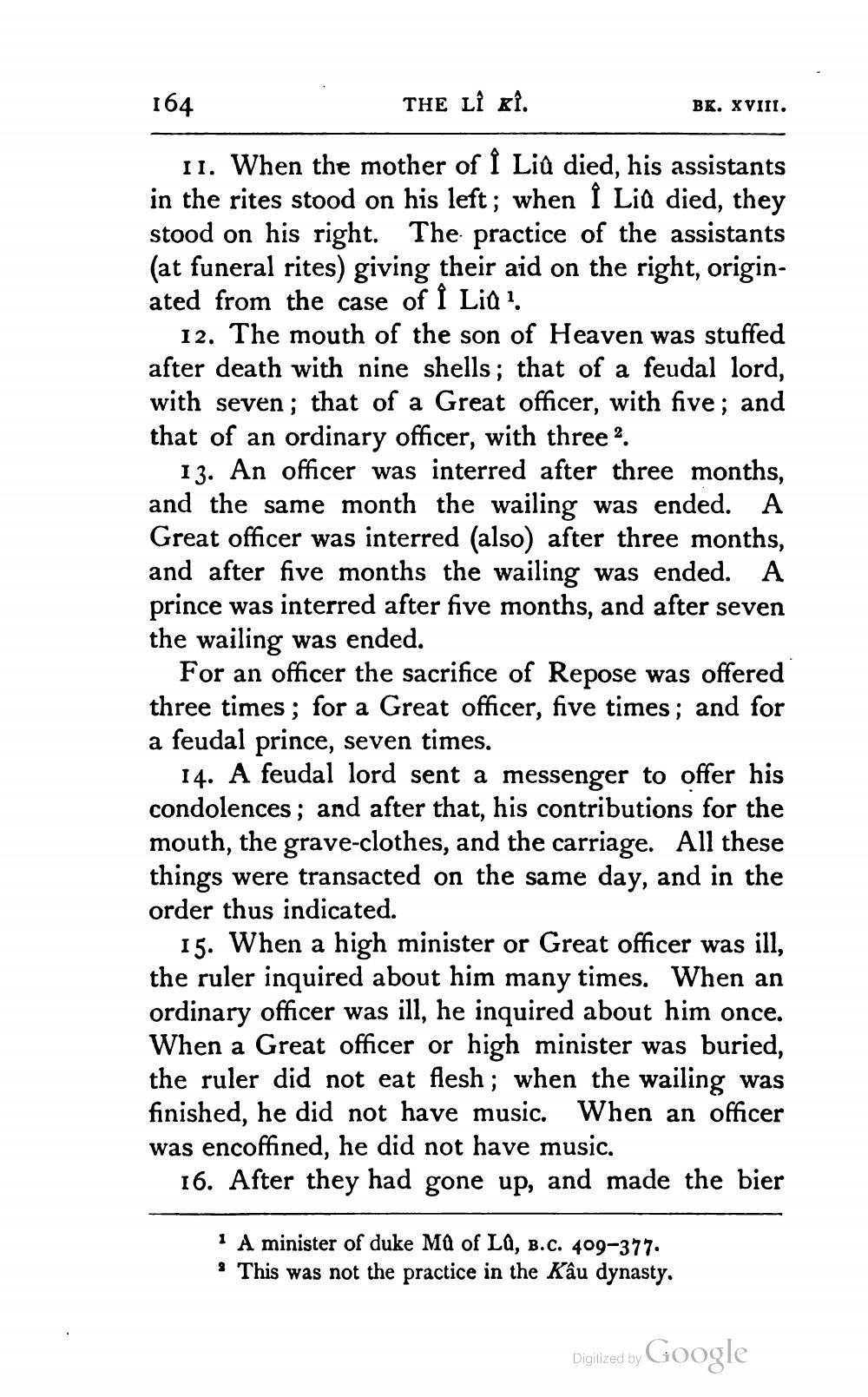________________
164
THE LI KI.
II. When the mother of Î Liû died, his assistants in the rites stood on his left; when I Liû died, they stood on his right. The practice of the assistants (at funeral rites) giving their aid on the right, originated from the case of Î Liù 1.
12. The mouth of the son of Heaven was stuffed after death with nine shells; that of a feudal lord, with seven; that of a Great officer, with five; and that of an ordinary officer, with three 2.
13. An officer was interred after three months, and the same month the wailing was ended. A Great officer was interred (also) after three months, and after five months the wailing was ended. A prince was interred after five months, and after seven the wailing was ended.
For an officer the sacrifice of Repose was offered three times; for a Great officer, five times; and for a feudal prince, seven times.
14. A feudal lord sent a messenger to offer his condolences; and after that, his contributions for the mouth, the grave-clothes, and the carriage. All these things were transacted on the same day, and in the order thus indicated.
BK. XVIII.
15. When a high minister or Great officer was ill, the ruler inquired about him many times. When an ordinary officer was ill, he inquired about him once. When a Great officer or high minister was buried, the ruler did not eat flesh; when the wailing was finished, he did not have music. When an officer was encoffined, he did not have music.
16. After they had gone up, and made the bier
1 A minister of duke Mû of Lû, B.C. 409-377. This was not the practice in the Kâu dynasty.
Digitized by
Google




